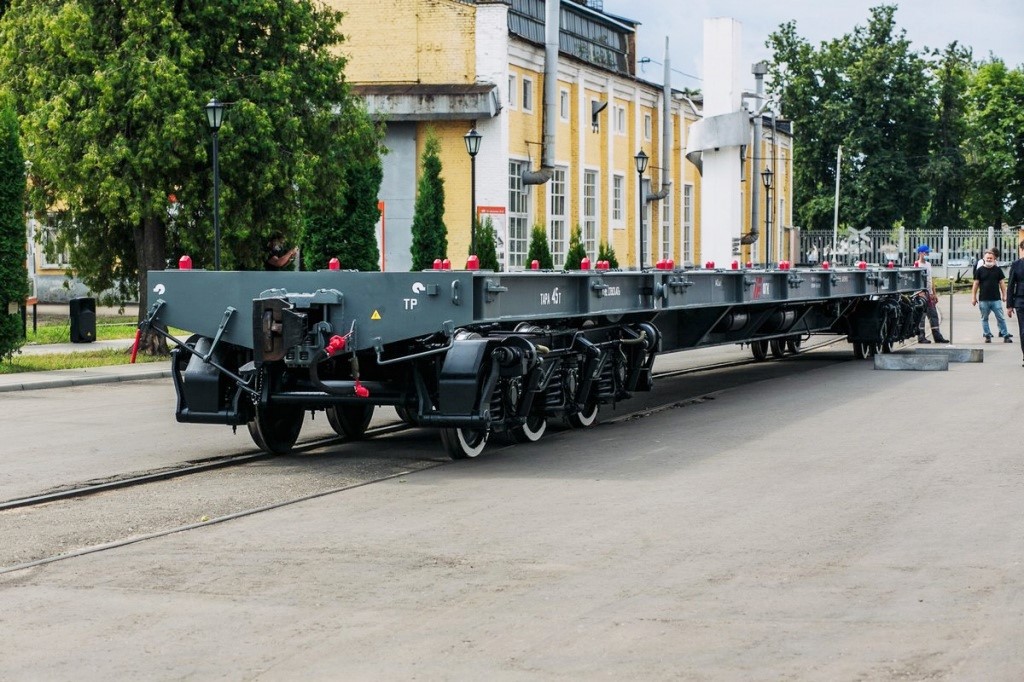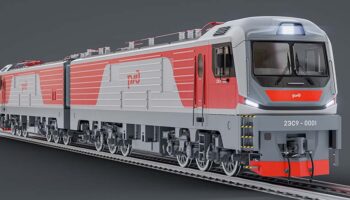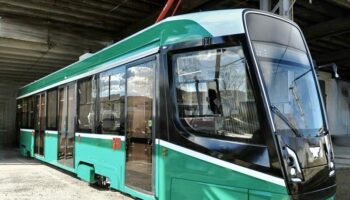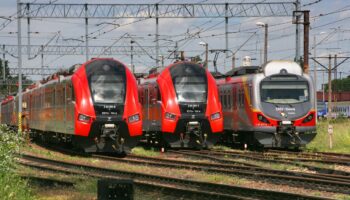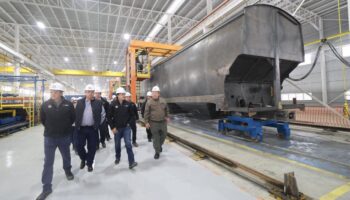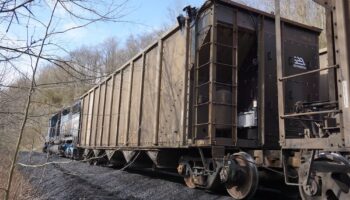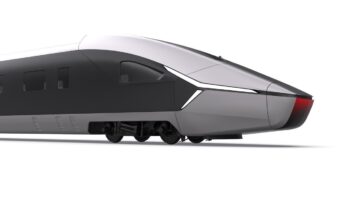Russia: Remputmash, a Kaluga-based plant of Sinara Transport Machines (STM), received approval under TR EAEU 001/2011 for an 80-foot container flatcar. The high-speed six-axle vehicle had been developed by order of the Federal Freight company (FFC, a subsidiary of Russian Railways) for its Long-Term Development Programme until 2025.
The 13-6704 flatcar was designed by VNIKTI, a R&D subsidiary of the Russian Railways. The task was to create a vehicle capable of carrying large containers at a design speed of 140 km/h. The prototype was unveiled by STM in 2021. Three companies of the holding participated in its manufacture. Bogies were made at the Lyudinovo Diesel Locomotive Plant and frames at Kalugaputmash. After the basic welding works at Kalugaputmash, the flatcar was finally assembled at the Remputmash plant.
13-6704 uses the 18-6731 three-axle bogie with a pneumatic brake. As explained by its developers, it allowed for reaching 140 km/h at an axle load of up to 200 kN (up to 20 tf) and increasing carrying capacity up to 75 tons (tare weight 45 t). The flatcars were tested at two sites: the VNIIZhT test loop and the test site of the North Caucasus Railway of the Russian Railways. During testing, the vehicles achieved 154 km/h as standards require, that is a record speed for a freight car in Russia.
The manufacturer emphasises some other advantages of the new flatcar. The overhaul period and smoothness are improved. 13-6704 container flatcars have lower axle load – up to 20 tf, so they have reduced impact on the track compared to standard bogies used in freight cars in Russia. The design service life is 32 years, and the estimated capability is 8.76 mln km. Electro-pneumatic brakes and monitoring sensors can be installed if necessary. They help monitor the health and location of a car and the condition and safety of cargo.
As Viktor Voronovich, CEO of FFC, told in his June 2021 interview with Gudok, the company intends to purchase 720 such platforms in 2022–2024. According to STM itself, the first batch will be of 41 cars. Later, in February 2022, another representative of the Russian Railways spoke to Gudok about the high cost of the platform. It was Igor Kharybin, head of freight car development at the Technical Policy Department at Russian Railways. As to him, the cost is primarily attributed to the use of three-axle bogies and the price increase risk related to electro-pneumatic brakes.
Many players in Russia are developing high-speed flatcars, for example, Kanash Railway Car Building Plant, part of the Tractor Plants holding, and RM Rail. The new Railway Operating Rules coming into effect in Russia last August, freight trains are allowed to run at 120-140 km/h with pneumatic braking.



